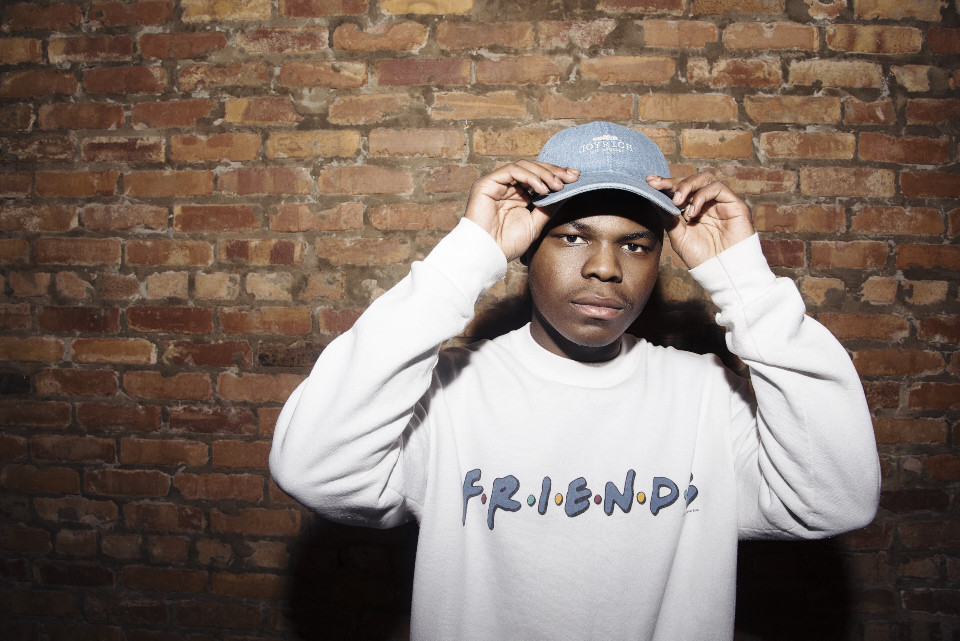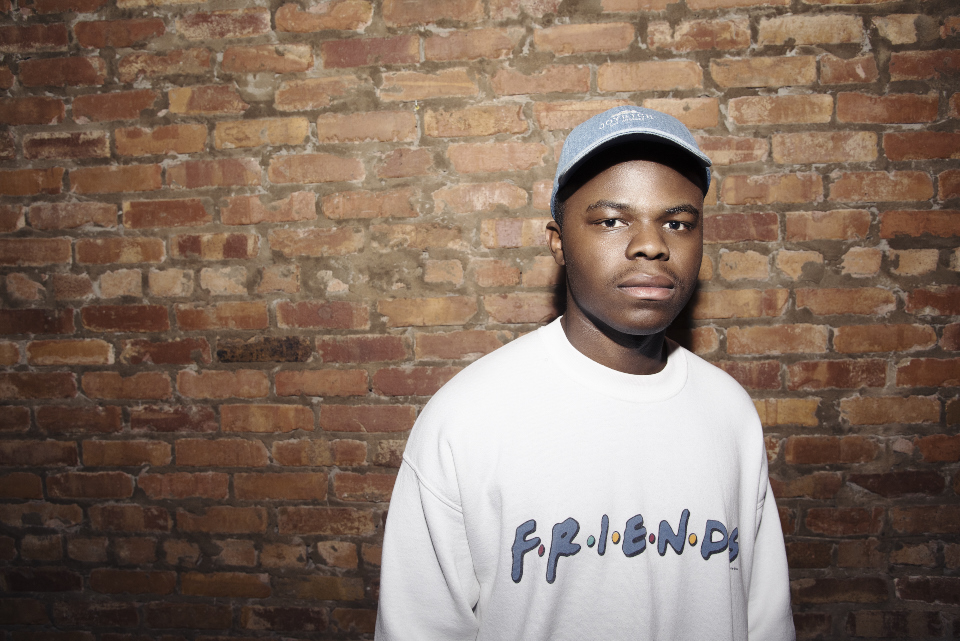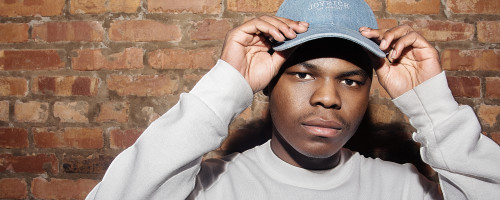The culmination of every year traditionally calls for a reminiscing of the days that came before, often dictating the kind of story it imparted. For 20-year-old Atlanta lyricist Daye Jack, 2015 was a tumultuous chapter filled with unfortunate instances of social injustice, discrimination and a continued, use of excessive police force against African Americans. Of course, transforming the issues faced by the Black community into a brighter narrative takes far more than a new year’s resolution to resolve, but the road to any solution must begin with a conversation.
In Jack’s song, “Hands Up”, featuring Killer Mike, released this past December, the two Atlanta-bred emcees voiced their take on social issues that inspired movements like #BlackLivesMatter. Visuals for the track dropped in February, just in time for Black History Month, further illuminating the brooding lyrics with a mosaic of both conflict and solidarity.
Jack teamed up with director David Gallardo to incorporate images of highly profiled accounts of police brutality, funerals and protests, particularly those that followed the 2014 shooting of unarmed teen Mike Brown in Ferguson, Missouri by a police officer. The video also fused glimpses of Martin Luther King Jr. and Malcolm X and images of crowds by the thousands, exemplifying the many hopes for justice in the name of those affected by racial discrimination.
The idea for a collaboration between Daye Jack and Killer Mike happened after they were introduced over the phone through a fellow colleague and found that their view on the topic was largely the same. The appearances of both lyricists appear minimally in the video, giving greater emphasis to the messages spoken.
Killer Mike, known for consistently being a voice in the fight against discrimination, only appears in a stream of quick proactive interview clips, while Jack is only outlined as a shadow spitting his two cents.

“I didn’t want a video that would have any additional content that would distract people from the actual things that were going on.”
“I wanted [the video] to speak for itself,” explains Jack, after sound check for a show he’s performing at in Toronto.
“I didn’t want a video that would have any additional content that would distract people from the actual things that were going on.”
It’s a topic of conversation that has returned to the mainstream, most recently marred in controversy following Beyoncé’s Super Bowl halftime show. Millions of viewers were given a glimpse of a Black and proud Beyoncé, through her performance of “Formation”, as she brandished Black Panther-inspired attire, while voicing lyrical declarations over her southern roots and an unapologetic distaste for police brutality.
The discussion over the current and past years has been conveyed diversely through the music of J. Cole, Lauryn Hill, Kendrick Lamar, Alicia Keys and many others in the industry, but no matter how it has been spun, Daye Jack believes that for the most part, Black people remain largely united on the topic of racism.

“Whenever someone’s given a voice, whether it’s music or art, I think just acknowledging something is enough to start a conversation with fans or followers of that person.”
“I think we all have the same voice when it comes down to it with topics like Black Lives Matter. We’re all trying to say the same thing, so I was just trying to do my part by putting the [“Hands Up”] video out to say how I feel about it,” says Jack.
“I feel like we’ve all gone through discrimination, we’ve all been brought down and been treated poorly due to race. We’ve been put on a different path or maybe had to work a little harder at some things, but at the same time I don’t think for me I would put myself in the same category as the mothers who’ve lost their children and the people who’ve lost their lives, [who] I was really trying to highlight in the video.”
While it can be questioned if belting your woes through rap lyrics or catchy melodies is directly helping the case on a real level, what is undeniable is that there has been a reaction to these rhythmic pleas. Hip-hop has long since been a viable tool for being a voice for the unheard by beginning a dialog through interpretation, a tradition “Hands Up” is continuing.
“I think songs are conversation starters. Whenever someone’s given a voice, whether it’s music or art, I think just acknowledging something is enough to start a conversation with fans or followers of that person. That’s what hip-hop is doing. The artists that decide to speak on it are just people starting conversations. Not so much solving the problems in many cases, but in my case I’m just trying to mention it so people can have the conversation.”
Photos © Isa Ransome & Urbanology Magazine




Comments are closed.